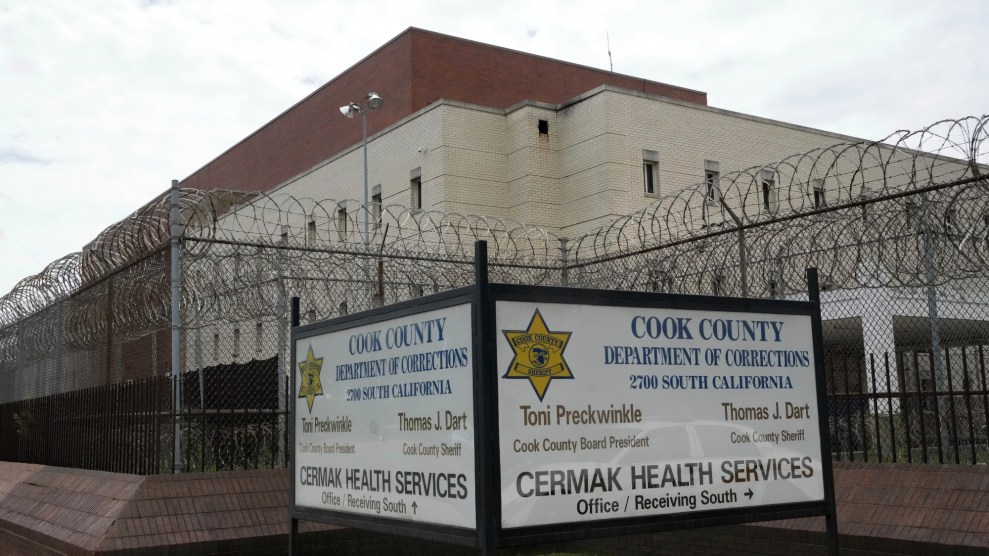Not long ago I described the plight of the growing numbers of older prisoners filling up the country’s prisons and jails. They receive poor health care and are subject to any number of cruel and inhuman punishments—people with bad arthritis are required to climb into upper bunks to sleep; it’s next to impossible for inmates in wheelchairs to access parts of prisons available to younger people, like baths. Among the worst sights described to me by a medical consultant were sick and often older inmates of an Alabama women’s prison who were forced to get out of bed at 3 a.m. and stand in lines to obtain medicine.
Another major issue faced by older prisoners is that they do not receive Social Security from the fund they paid into for years before being convicted of a crime. Lois Ahrens, who runs the indispenable Real Cost of Prisons Project, alerted me to the situation of David Hinman, a prisoner in Iowa. Now 65 years old, he contributed to Social Security for years while in the free world. He is not eligible for parole for a number of years. He wrote to Ahrens:
Currently the government will not pay people in prison social security. I am speaking about paying social security to those who paid into the fund. Payment is based on what they paid in. Even though I am now 65 and paid into the fund, since I am in prison I am not allowed to collect unless I am released from prison. By not paying inmates the social security to which they are entitled, I believe this is in some manner, theft.
He continued: “My question to readers is: should prison inmates who paid into social security and reached 65 be allowed to collected social security while incarcerated or not.” (You can reach David Hinman (#25374), Anamosa State Penitentiary, 406 North High Street, P.O. Box 10, Anamosa, IA 52205-0010.)
Asked about this situation Paul Wright, editor of Prison Legal News, the excellent magazine which tracks prison issues, wrote me:
Part of the problem I have with this is that someone can work their whole life, pay into Social Security, commit a crime at a later age, and go to prison for the rest of their life and never see a penny of the money they paid into SS. The lie used to justify this is prisoners have no need for money but that is not true. I think it is a backdoor way to trim the SS.rolls … To put it into context, retirees can get their pensions in prison, veterans can get their VA benefits in prison. It follows that if you earn something you are entitled to it. It is not a freebie the government can take away because it doesn’t like you and that is exactly what they do here.
Wright attached an article from a 1998 isssue of Prison Legal News that explains the situation in the bleakest of terms:
Denial of Social Security Benefits to Prisoners Upheld
The court of appeals for the Ninth circuit held that a statute denying Social Security benefits to prisoners is constitutional. Robert Butler is a 77 year old Nevada state prisoner. Butler was granted social security retirement benefits in 1983. He was later incarcerated and the Social Security Administration (SSA) determined he was not entitled to benefits while he was incarcerated pursuant to 42 U.S.C. § 402(X). An administrative law judge affirmed the SSA’s decision. Butler filed suit in federal court and it was dismissed for failing to state a claim upon which relief could be granted. The court of appeals affirmed.The appeals court noted that every court to consider the constitutionality of 42 U.S.C. § 402(X), this includes the Second, Fourth, Eighth, Tenth and Eleventh circuits, had upheld the law. Congress has wide discretion in administering welfare resources. The court held that § 402(X)’s ban on social security benefits to prisoners does not violate constitutional guarantees to due process, equal protection and protection against ex post facto laws and bills of attainder. The court also held that Butler was provided with ample due process before his benefits were terminated because he participated in the SSA hearing by telephone. Since the statute leaves no room for agency discretion and the only fact issue was whether or not Butler was a felon doing time in prison, the telephone hearing was sufficient to safeguard Butler’s due process interest in his social security benefits. See: Butler v. Apfel , 144 F.3d 622 (9th Cir. 1998)












